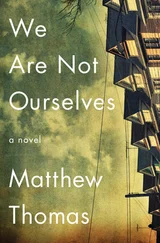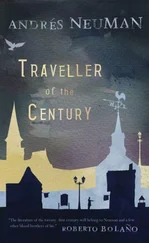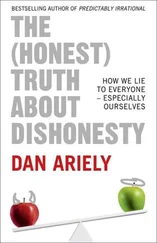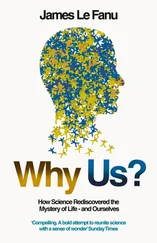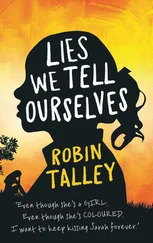Are you hungry? asks Dad. No, I reply. A bit, maybe. We’ll stop again soon, Dad says looking at the map, that’s enough for today. Then he stretches his arms (I don’t think he should let go of the steering wheel, Mum always says that to him in the car, and Dad tells her he knows what he’s doing, and Mum says if he knew what he was doing he wouldn’t let go of the steering wheel, and Dad says she can drive next time, and Mum says he’s unbearable when she drives, and they both go on like that for a while), he bends forward, twists his neck, sighs. His face looks tired. Hey, I say, why don’t we eat some of what’s in the back? No, Lito, no, Dad laughs, we have to deliver the goods intact. Besides, everything’s packed into boxes. And counted. One by one? I ask. One by one, he says. And they count everything again after we’ve made the delivery? I ask. I really don’t know, Dad says. So what’s the point? I grow impatient. Son, he says, there are lots of things about work that make no sense. That’s what they pay us for, do you see what I mean? More or less, I say.
We park Pedro outside a bar with coloured lights. Dad reminds me to call Mum. I tell him I’ve just sent her a text. Call her anyway, he insists. Oof. What’s great is that afterward he asks the big question: Motel or truck? Truck! I cry, truck! But tomorrow, Dad says pointing a finger at me, we shower, right?
We climb down to take a leak. We brush our teeth using a bottle of water. We make up the bed at the back. We lock the doors. Cover the windows with some strips of plastic. We lie with our backs to the wheel. The bunk is hard. Dad puts his arm round me. His arm smells of sweat and of petrol a bit, too. I like it. When I close my eyes I start hearing the crickets. Don’t crickets ever go to sleep?
They’ve just left. I hope my son comes back happy. I already know my husband won’t be coming back. It was now or never, I agree. Although Mario finds it hard (men do as a rule) to admit that sometimes it’s never.
Apart from the possibility of accidents (something which terrifies me even to write), what if he takes a turn for the worse? What if he can’t carry on? What would Lito do then? Mario refuses even to contemplate it. He seems convinced that his will-power outstrips his physical strength. As usual I gave in. Not out of generosity, but rather guilt. The absurd thing is that now I regret it all the same.
If Mario accepted the limits of his strength, we would have told all our friends the truth. He prefers us to be secretive. Discreet, he calls it. A patient’s rights go unquestioned. No one talks about the rights of the carer. Another person’s illness makes us ill. And so I’m in that truck with them, even though I’ve stayed at home.
Mario insisted he needed to go on a trip with his son at least once in his life. To take him in the truck, the way his father had done with him. I couldn’t refuse him that. But then he came out with an unacceptable argument. He said that in any event we could do with the money. Worse: that I could do with it. If he’s already putting it like that, then he won’t be able to withstand all those miles. And the fact that he insists on making financial decisions the way my father-in-law did, like a paterfamilias, shows that deep down he’s in denial about his situation.

I’ve just called Dr. Escalante. I made an emergency appointment so that he can tell me about Mario’s physical state and whether he will really make it through this trip. We should have consulted Dr. Escalante before deciding anything. Perhaps Mario knew what the answer would be, and that’s why he was against it from the start. He kept telling me it was a personal matter, not a medical one. What was I supposed to do, drag him there? But I think that now at least I am within my rights to see Dr. Escalante on my own. I want to know exactly how he found him during the last checkup. I’m going to ask him to be absolutely honest. I suppose I must have sounded quite anxious, because he’s given me an appointment tomorrow morning at eleven.
The staff room is not far away, so I’ll make the most of it and go there to prepare the language resits. They are still some way off, but not working drives me crazy. I’m afraid there are two kinds of alienation: one is the exploited worker’s, the other that of the worker on holiday. The first has no time to think. The second can only think, and that is his sentence.
I’m still waiting for Mario to reply to my message. I feel hot and nervous at the same time. I need to scratch my body hard all over, until I’ve peeled away something I can’t quite put a name to. I don’t like it when Mario answers the phone while he’s driving. And so I am in his hands. It is me he is throttling as he grips the steering wheel. He turns it. And he is wringing my neck. Enough. I won’t continue this diary until I receive his message.
I won’t continue this diary until I receive his message.
I won’t continue this diary until I receive his message.
I won’t continue this diary until. At last, at last.

They are fine. Or so they tell me. At least they were thoughtful enough to send me two messages. Mario’s strikes the right note. Concise without being evasive. Affectionate without sounding sentimental. He still knows how to treat me, when he wants. That’s what made me fall in love with him: his ability to handle silences as well as words. Some men are brilliant talkers, I’ve met many like that. But almost none of them know when to be silent. Most of my female friends confuse the tough guys with the silent types. I think that’s a movie myth. The worst examples of male aggression I’ve come across have been intolerably verbal. At full volume.
As usual, I found Lito’s reply hard to decipher. All those abbreviations that supposedly speed things up, don’t they slow down the meaning of the message? Don’t they impede communication? I’m growing old.

I sat in the waiting room for an hour and a half. Seeing all those sick people together didn’t exactly put my mind at ease. In the end Dr. Escalante fitted me in between two patients. He gave me no more than five minutes. He nodded practically the whole time and apologized for the rush. When he saw me tormented by all the questions I had, he suggested I come back tomorrow. He has a gap between twelve and twelve-thirty. I’ll be there. All he had time to tell me was that, while the trip has its risks, right now Mario’s body is experiencing a respite thanks to having stopped taking the drugs. And that this normally boosts the immune system for a limited period. So the additional uplift, although there are no guarantees of course, might help Mario recover some of the strength he lacked months ago. I asked the doctor how limited that period would be. He shrugged and said: Limited.
The cautiousness of doctors irritates me. Conversing with them is like talking on a phone without any coverage. In other words, like listening to yourself speak. They allow you to get things off your chest, to ask questions the answers to which you dread, and gradually to become aware of what’s going on based on the information they drip-feed you. Dr. Escalante is a strange man. He knows how to manage his position. He doesn’t display his power: he calmly takes it for granted. What strikes me most about him is his air of discreet composure, his aloof self-confidence, combined with the energy of a man his age. I notice that profusion of energy in his look and in his brusque arm movements. As a matter of fact, Dr. Escalante isn’t that much younger than I am. And yet when I’m with him, I’m not quite sure why, I feel like an older woman, or as if my life is duller than his. I’ll bet anything he doesn’t have kids.
Читать дальше
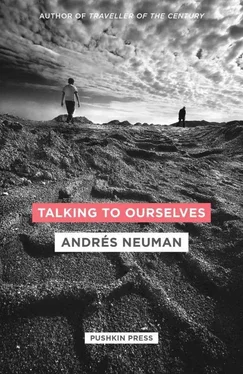

![Корнелл Вулрич - Eyes That Watch You [= The Case of the Talking Eyes]](/books/32103/kornell-vulrich-eyes-that-watch-you-the-case-of-thumb.webp)
